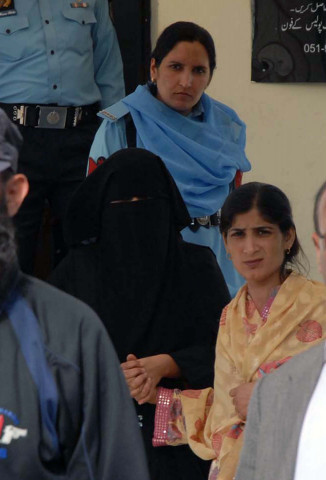SC refrains from binding decision on conversion cases
Sends women to shelter home to independently decide who to live with.

Families of the two women allege that they were forced to convert from Hinduism to Islam by their husbands.
A three-member bench decided that the women would be sent to a shelter home ‘Panah’ for the next three weeks. This is in order for them to decide independently, and without any pressure, whether they want to return to their husbands or to their families.
During Monday’s proceedings, Chief Justice Iftikhar Muhammad Chaudhry said that minorities were indeed a “weak segment” and the court needed to be careful while deciding such cases. “If two people marry out of their own free will, why should the court get involved?”
Rinkle answered the simplest questions reluctantly. She took more than two minutes to inform the court whether she studied art or science subjects at high school.
The courtroom was full of lawyers, human rights activists and people of the Bharchoondi Sharif area. As a result, the chief justice asked everyone to leave the room for 15 minutes so the statements could be recorded sans external pressure.
The women claimed in their in-camera statements to have married on their own will. However, the court observed that since there was a lot of pressure from the parents of the two women, they need to be given time to decide their futures without any pressure.
After the proceedings, Rinkle wanted to be accompanied by her mother to the shelter, but the court ordered that only the police would escort her.
Dr Lata, however, was a little more assertive. When her father Mukesh Kumar raised a hue and cry about his daughter’s plight, she tried to confront him.
Justice Chaudhry ordered that the two girls be brought before the court on April 18. Until then, they can meet anyone, but with the court’s permission. No one can meet them forcefully at the shelter home.
Hearing a petition moved by the Pakistan Hindu Council, the chief justice directed Attorney General Maulvi Anwarul Haq to approach the government for legislation of a bill for the protection of minorities. There is currently no act to protect their rights.
Published in The Express Tribune, March 27th, 2012.



















COMMENTS
Comments are moderated and generally will be posted if they are on-topic and not abusive.
For more information, please see our Comments FAQ